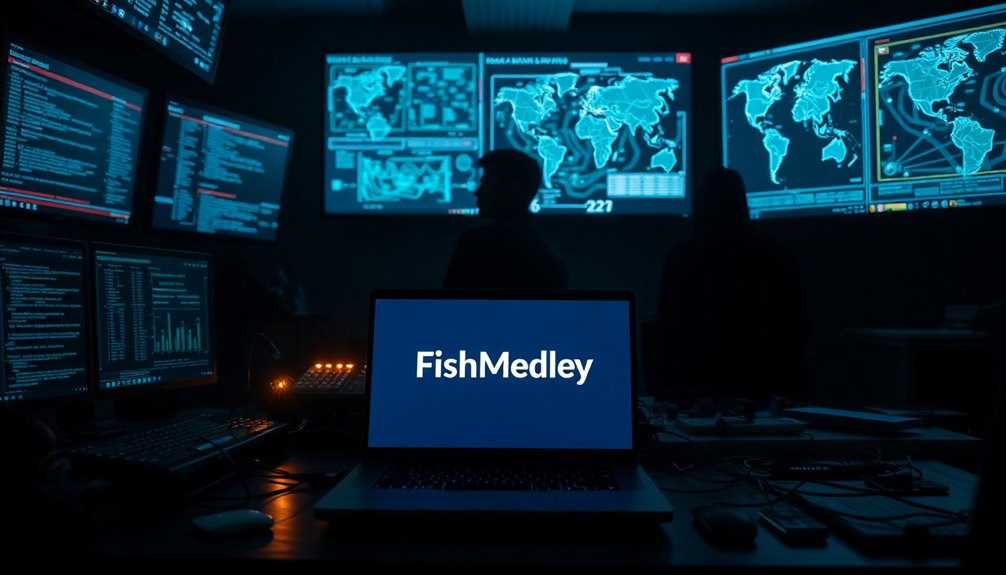
As cyber threats continue to escalate globally, you might find it alarming to learn about China’s elite cyber operations, particularly those orchestrated by I-Soon, a group linked to the Ministry of Public Security. This organization isn’t just a faceless entity; it has a well-structured operational arm known as FishMonger, which specializes in espionage and cyber attacks.
Operating primarily out of Chengdu, China, FishMonger has targeted various organizations across the globe, including institutions in the US, Taiwan, Hungary, Turkey, Thailand, and France. In 2022, FishMonger launched Operation FishMedley, compromising seven organizations using sophisticated techniques and tools. They employed malicious software like ShadowPad and Spyder, enabling them to gain privileged access to victims’ networks. Through this access, they conducted manual reconnaissance and credential extraction, showcasing their capability for in-depth cyber espionage.
FishMonger, based in Chengdu, China, has launched cyber attacks on organizations worldwide, including in the US and Europe.
The attackers meticulously scanned networks, extracted passwords, and exfiltrated sensitive data, underscoring the dire need for robust cybersecurity measures. The campaign revealed through a document leak and subsequent US indictments indicates the extensive planning and coordination behind these operations.
You should recognize that the tools used by I-Soon and its subdivisions aren’t unique to them; they reflect a broader trend among China-aligned threat actors. By utilizing RPipeCommander, a tool that creates reverse shells for remote command execution, FishMonger demonstrates a level of sophistication that can catch even seasoned cybersecurity experts off guard.
The implications of such operations are far-reaching, highlighting an evolving landscape where state-sponsored groups pose a significant threat to global cybersecurity. The global impact of I-Soon’s operations is profound, as they frequently target US federal and state agencies, human rights activists, journalists, and pro-democracy dissidents.
The U.S. government’s response included indicting ten I-Soon employees for their hacking activities, a move that raises questions about the legal and diplomatic repercussions of such cyber warfare. This not only reflects the seriousness of the actions undertaken by these cyber operatives but also signals the growing international tensions around state-sponsored cyber activities.
As organizations face these sophisticated threats, they must prioritize enhancing their cybersecurity measures. Collaboration between cybersecurity firms and governments will be crucial in combating the increasing threats posed by state-aligned groups like I-Soon. It’s clear that the landscape of cyber warfare is evolving rapidly, and staying ahead of these threats will require constant vigilance and innovation.









